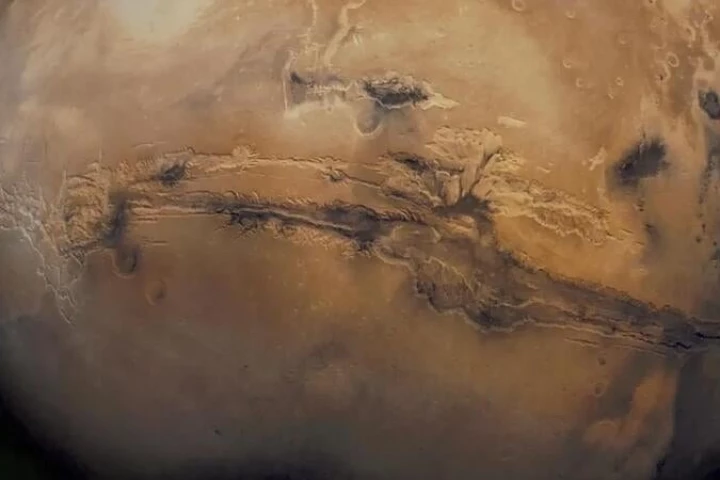Science
The latest in science news, from the depths of space to the quantum realm.
Top Science News
-
For nearly a century, a strange band of 5,200 holes carved into a hillside has defied explanation. Stretching for nearly a mile along the edge of the Pisco Valley, Monte Serpe – "serpent mountain" – may have finally revealed its secrets to scientists.
-
Archeologists say they have solved the 6,000-year-old mystery of Armenia’s “dragon stones" – massive carved monoliths scattered across high-altitude slopes and pastures where no ancient settlements ever existed. It's a story of worship and water.
-
High on sheer cliffs in China, ancient coffins are wedged into rock faces hundreds of feet above the ground. These dramatic burials, now re-examined using ancient DNA, point to a broader practice where disparate cultures all had their own "sky graves."
Load More
Latest Science News
-
Swingers and long-game players: The wild sex lives of beluga whales
January 25, 2026 | Bronwyn ThompsonFor the first time, we know more than we ever expected to know about the sex lives of the majestic beluga whale. It's complicated, to say the least, but it also shows just how strategic nature is at keeping an isolated group of animals alive. -
Jellyfish sleep just like us, and even take midday naps
January 24, 2026 | Jay KakadeA new study reveals jellyfish not only sleep but do so for the same portion of their day as humans, spending about one-third of the day sleeping. The findings also suggest that sleep evolved way before the brain to help maintain cells under stress. -
You can now make fish-free omega-3s from whisky waste
January 23, 2026 | Shirl LeighOmega-3 fatty acids sourced from wild-caught fish stocks are valued for their studied health benefits, but this has resulted in a reduction in fish stocks. A Scottish firm is working on a solution, in the form of omega-3s made from whisky waste. -
Undersea earthquakes are supercharging the Southern Ocean
January 22, 2026 | Chelsea HaneyThe first ever study to document a direct relationship between earthquake activity at the bottom of the ocean and phytoplankton growth at the surface changes the way scientists in the future will model ecosystems. -
Forestry-waste pine bark could be used to pull antibiotics out of wastewater
January 21, 2026 | Ben CoxworthIt's a sad fact that antibiotics are constantly entering the environment through the wastewater stream. There could soon be a cheap new way of removing those antibiotics from the water, however, using plentiful pine bark. -
Could glowing green skin be an alternative to blood sampling?
January 14, 2026 | Ben CoxworthBlood sampling is painful, plus it only tells you what's going on in the patient's body right when the sample is taken. So, how about this? Permanent skin grafts that glow green when specific biomarker chemicals are present in the bloodstream. -
Don't like ice ages? Blame Mars
January 13, 2026 | David SzondyWhy did the ice ages occur? If you need a scapegoat, a new study by Stephen Kane of UC Riverside suggests pointing the finger at Mars. According to computer models, the pull of the Red Planet may have altered the Earth's orbit until things got nippy. -
This animal's armor has upended a key law of evolution
January 13, 2026 | Bronwyn ThompsonFor more than a century, biologists assumed that the bony plates found in the skin of lizards – nature's chain mail – were an ancient feature that some lineages inherited and others later lost. But new evidence suggests this is entirely wrong. -
COVID lockdowns changed the beak shape of these city birds
January 11, 2026 | Chelsea HaneyWhen COVID-19 lockdowns emptied city streets, urban environments changed almost overnight. New research suggests that Los Angeles city birds responded just as quickly, with measurable shifts in beak shape in offspring born during the lockdown period. -
Spray-on armor for plants offers a new tool for global food security
January 10, 2026 | Malcolm AzaniaBy adjusting a typical polymer synthesis, researchers have created a spray-on polymer solution that could save billions of tons of crops. It's harmless to plants, and weakens the cell membranes of a variety of harmful bacteria.
Load More












